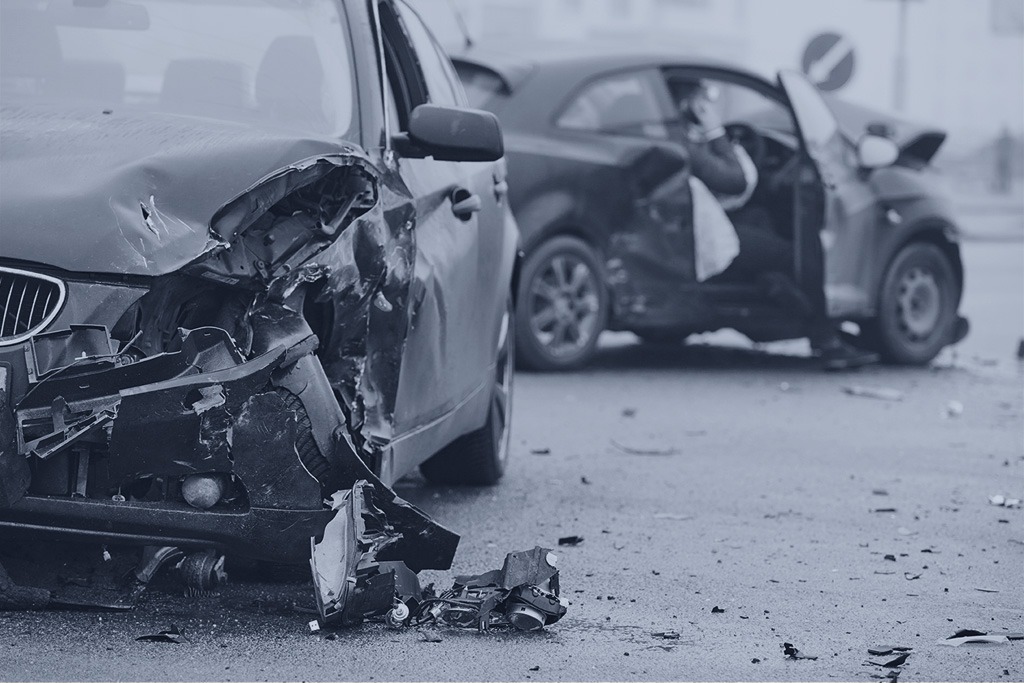Introduction
Every day in the United States, hundreds of people are injured or killed in car accidents. These accidents can be caused by a variety of factors, including distracted driving, speeding, and drunk driving. It can be a terrifying experience that leaves victims feeling shaken and unsure of what to do next.
If you’re involved in a car accident, it’s important to seek medical attention right away, even if you don’t think you’re injured. Some injuries, such as whiplash, may not show up right away. Seeking medical attention as soon as possible will help to ensure that you get the treatment you need and document your injuries for insurance purposes.
In addition to seeking medical attention, you should also contact a car accident lawyer. A lawyer can help you understand your legal rights and options, and they can represent you in court if necessary. If you were injured in a car accident that wasn’t your fault, you may be entitled to compensation for your injuries, lost wages, and pain and suffering. A lawyer can help you get the compensation you deserve.
Steps to Take After a Car Accident
If you’re involved in a car accident, it’s important to stay calm and follow these steps:
- Pull over. If possible, pull over to the side of the road.
- Stay in your car. Unless your car is on fire or otherwise unsafe, stay in your car and wait for the police to arrive.
- Call 911. Even if you don’t think you’re injured, it’s important to call 911 so that the police can file a report.
- Exchange information. Once the police arrive, exchange information with the other drivers involved in the accident. This includes your name, address, phone number, and insurance information.
- Take photos. If possible, take photos of the accident scene. This will help to document the damage and provide evidence for your insurance company.
- Get a copy of the police report. Once the police have completed their investigation, ask for a copy of the police report. This will be helpful for your insurance company and your lawyer.
- Contact a lawyer. If you were injured in the accident, it’s important to contact a lawyer as soon as possible. A lawyer can help you understand your legal rights and options, and they can represent you in court if necessary.
Common Car Accident Injuries
Car accidents can cause a wide range of injuries, including:
- Whiplash is a neck injury that can occur when your head is suddenly jerked back and forth. Whiplash can cause pain, stiffness, and headaches.
- Concussion is a head injury that can occur when your head hits something hard. A concussion can cause a variety of symptoms, including nausea, vomiting, dizziness, and confusion.
- Broken bones are a common injury in car accidents. Broken bones can occur in any part of the body, but they are most common in the arms, legs, and ribs.
- Internal injuries are injuries to the organs or tissues inside the body. Internal injuries can be serious and even life-threatening.
How to Avoid Car Accidents
There are a number of things you can do to avoid car accidents, including:
- Pay attention to the road. When you’re driving, focus on the road and avoid distractions such as texting, talking on the phone, or eating.
- Obey the speed limit. Speeding is one of the leading causes of car accidents. Always obey the speed limit and slow down in bad weather or when driving in unfamiliar areas.
- Don’t drink and drive. Drunk driving is a serious crime that can have deadly consequences. If you’re going to be drinking, make sure to have a designated driver.
- Wear your seatbelt. Wearing your seatbelt can save your life in a car accident. Always wear your seatbelt, even on short trips.
- Be aware of your surroundings. When you’re driving, be aware of your surroundings and anticipate potential hazards. This includes paying attention to other cars, pedestrians, and cyclists.
Car Accident Cases: What You Need to Know
Car accidents are a major problem in the United States. Every year, millions of people are injured or killed in car crashes. If you’ve been involved in a car accident, it’s important to know your rights and options. You may be entitled to compensation for your injuries, lost wages, and other damages.
There are many different types of car accident cases. Some of the most common include:
- Rear-end collisions
- Head-on collisions
- Side-impact collisions
- Rollover accidents
- Pedestrian accidents
- Bicycle accidents
- Motorcycle accidents
The severity of a car accident can vary greatly. Some accidents are minor, while others can be catastrophic. If you’ve been involved in a car accident, it’s important to seek medical attention immediately, even if you don’t think you’re injured. Some injuries, such as whiplash, may not be immediately apparent.
Causes of Car Accidents
Car accidents can be caused by a variety of factors, including:
- Human error is the leading cause of car accidents. This includes things like distracted driving, speeding, and drunk driving.
- Vehicle defects can also cause car accidents. These defects can include things like faulty brakes, tires, or airbags.
- Road conditions can also be a factor in car accidents. This includes things like slick roads, potholes, and construction zones.
- Weather conditions can also make it more difficult to drive safely. This includes things like rain, snow, and fog.
Distracted Driving
Distracted driving is one of the leading causes of car accidents. Anything that takes your attention away from the road can be a distraction. This includes things like talking on the phone, texting, eating, or even adjusting the radio. Even a brief distraction can be enough to cause an accident.
In the United States, distracted driving is a major problem. According to the National Highway Traffic Safety Administration (NHTSA), over 3,000 people were killed in car crashes involving distracted drivers in 2020. That’s an average of eight deaths every day.
Distracted driving is a serious problem that can have deadly consequences. If you’re going to drive, put your phone away and focus on the road. It’s not worth the risk.
Car Accident Cases: What You Need to Know
In the tumultuous realm of traffic, car accident cases are a grim reality that can leave lasting scars on countless lives. Every year, countless individuals find themselves entangled in the aftermath of a collision, facing a labyrinth of legal and medical complexities. Understanding the consequences of car accidents is paramount for navigating this challenging landscape.
Consequences of Car Accidents
Car accidents can unleash a devastating toll on victims’ bodies and minds. The severity of injuries can range from superficial scrapes to catastrophic trauma.
Physical Injuries:
Car accidents can inflict a spectrum of physical injuries, including:
- Broken bones
- Lacerations and contusions
- Traumatic brain injuries
- Spinal cord injuries
The impact of these injuries can be profound, hindering mobility, cognitive function, and overall well-being.
Emotional and Psychological Trauma:
Beyond the physical toll, car accidents can also wreak havoc on victims’ emotional and psychological states. These accidents often trigger:
- Anxiety and depression
- Post-traumatic stress disorder (PTSD)
- Sleep disturbances
- Difficulty concentrating
The psychological scars of a car accident can linger long after the physical wounds have healed.
Economic Impacts:
Car accidents can also have a significant financial impact on victims. Medical expenses, lost wages, and property damage can quickly accumulate, putting a strain on individuals and their families. The burden of these costs can weigh heavily on the shoulders of victims, adding to the already overwhelming challenges they face.
Car Accident Cases: Determining Fault and Liability
A car accident can be a life-altering event, leaving victims with physical and emotional trauma, as well as significant financial burdens. Understanding how liability is determined in car accident cases is crucial for victims seeking justice and compensation.
Liability in Car Accident Cases
Determining who is liable for a car accident is not always straightforward. Several factors come into play, including the actions of the drivers involved, any witnesses, and the applicable laws in the jurisdiction where the accident occurred. Generally, liability is based on the concept of negligence, which means that a person failed to act with reasonable care and caused harm to another person or their property. In the case of car accidents, negligence can be established by proving that the at-fault driver breached their duty of care by failing to obey traffic laws, driving while intoxicated or distracted, or making careless mistakes.
In many cases, determining liability is not a black-and-white issue. There may be multiple parties at fault, or the facts of the case may be disputed. In such situations, an experienced car accident attorney can help victims navigate the legal process and protect their rights.
Comparative negligence laws vary from state to state. Some states follow a pure comparative negligence rule, which allows victims to recover compensation even if they are partially at fault for the accident. Other states use a modified comparative negligence rule, which bars victims from recovering compensation if they are more than a certain percentage at fault. Understanding the comparative negligence laws in your jurisdiction is crucial for determining your eligibility for compensation.
In addition to proving negligence, victims of car accidents must also establish that they suffered damages as a result of the accident. These damages can include medical expenses, lost wages, pain and suffering, and property damage. The amount of compensation awarded will depend on the severity of the injuries, the victim’s earning capacity, and other relevant factors.
Navigating the legal process after a car accident can be overwhelming. Victims often face mounting medical bills, lost income, and emotional distress. By understanding the basics of liability and damages in car accident cases, you can make informed decisions about your legal options and seek justice and compensation for the harm you have suffered.
Car Accident Cases: Sorting Out Legal Rights and Insurance Claims
Car accidents are a distressing reality of life. If you or someone you know has been injured in an auto wreck, it’s crucial to seek legal counsel. Car accident attorneys specialize in protecting the rights of victims and navigating the complex legal landscape that often follows an accident. They can provide expert guidance and representation throughout the legal process, maximizing your chances of obtaining fair compensation for your injuries and damages. Seeking legal advice promptly can make a significant difference in the outcome of your case.
Insurance Coverage for Car Accidents
Most car insurance policies provide coverage for injuries and damages caused by car accidents. However, the extent of coverage varies depending on the policy’s terms and your state’s laws. In most cases, liability insurance covers bodily injury and property damage caused to others. Collision insurance covers damage to your own vehicle, regardless of who is at fault. Uninsured/underinsured motorist coverage protects you if you’re hit by a driver without insurance or with inadequate insurance to cover your damages.
Steps to Take After a Car Accident
In the aftermath of a car accident, it’s essential to take the following steps: Seek medical attention immediately, even if your injuries seem minor. Report the accident to the police to create an official record. Exchange insurance and contact information with the other driver. Take pictures of the accident scene and any visible injuries. Gather witness statements. Don’t sign any documents or make any statements to the other driver’s insurance company without consulting with an attorney.
Common Types of Car Accident Injuries
Car accidents can result in a wide range of injuries, including: Whiplash, a neck injury caused by the sudden back-and-forth motion of the head. Broken bones, which can range from minor fractures to severe breaks that require surgery. Head injuries, which can cause concussions, traumatic brain injuries, and even death. Internal injuries, which may not be immediately apparent but can be life-threatening. Back and spinal cord injuries, which can cause paralysis or permanent disability.
Fault and Negligence in Car Accident Cases
Determining who is at fault in a car accident is crucial for assigning liability and recovering damages. Negligence is the failure to exercise reasonable care and is the most common basis for car accident lawsuits. To prove negligence, the injured party must show that the other driver breached a duty of care, causing the accident and resulting in injuries or damages. Contributory negligence, where the injured party is partially responsible for the accident, can reduce or bar recovery of damages in some states. Comparative negligence, where both parties share fault, allows for damages to be apportioned in proportion to the parties’ relative fault.
Car Accident Cases: Steps to Take After a Catastrophic Event
Car accidents are a harrowing reality on our roads, leaving countless victims in their wake. If you or a loved one has been involved in a car accident, it’s crucial to understand the steps to safeguard your legal rights. This guide provides detailed instructions to empower you in the aftermath of such a traumatic event.
1. Ensure Safety
In the immediate aftermath of a car accident, safety should be your utmost priority. Pull over to a safe location, turn on your hazard lights, and check for any injuries. If you’re able, assist others who may be injured. Call 911 immediately to summon medical help and the police. Staying calm and collected will help you make sound decisions in the chaotic aftermath.
2. Exchange Information
Once the scene is secure, exchange essential information with the other drivers involved. Get their full name, contact information, insurance details, and license plate numbers. Obtain the names and numbers of any witnesses who may have seen the accident. Documenting this information accurately will be crucial for your insurance claim and any potential legal proceedings.
3. Document the Scene
Take photographs of the accident scene from various angles. Capture the damage to your vehicles, any skid marks, and the surrounding environment. This visual evidence will serve as a valuable record for both your insurance company and the authorities. If possible, draw a diagram of the accident scene to illustrate the positions of the vehicles and the direction of travel.
4. Seek Medical Attention
Even if you don’t feel injured at the scene, it’s essential to seek medical attention as soon as possible. Some injuries, such as whiplash, may not manifest until hours or days later. A thorough examination will ensure you receive prompt treatment and create a medical record of your injuries. This documentation will play a critical role in your insurance claim and any subsequent legal action.
5. Report the Accident
In most states, you have a legal obligation to report the accident to the Department of Motor Vehicles (DMV) within a specified timeframe. Failure to do so may result in penalties or affect your insurance coverage. The DMV report will provide an official record of the accident for both insurance and legal purposes.
6. Contact Your Insurance Company
Promptly notify your insurance company about the accident. Report the details of the accident and provide any documentation you have collected. Do not admit fault at this stage, as it could affect your claim. Your insurance agent will guide you through the process of filing a claim and assessing the damages to your vehicle. They may also provide you with legal advice or recommendations for reputable attorneys in your area. Remember, your insurance company is not looking for reasons to deny your claim, but to assist you in recovering from the accident and getting back on your feet.
7. Consider Legal Options
If you have sustained serious injuries or believe the other driver was negligent, you may want to consider pursuing legal action. An experienced attorney can represent you in court, negotiate with the other driver’s insurance company, and help you seek fair compensation for your medical expenses, lost income, pain, and suffering.
Conclusion
Navigating the aftermath of a car accident can be a daunting and stressful experience. By understanding the steps outlined above, you can protect your legal rights, ensure your injuries are properly treated, and maximize your chances of a fair settlement. Remember, you are not alone in this journey. Seek the support of family, friends, and professionals to guide you through this challenging time.
Car Accident Cases: A Guide to Protecting Your Rights
Even the most cautious drivers can find themselves in a car accident. If you’ve been injured in a crash, it’s important to take the necessary steps to protect your rights.
What to Do After a Car Accident
In the immediate aftermath of a car accident, it’s easy to feel overwhelmed. However, there are a few things you can do to protect your rights:
- Call the police.
- Get medical attention.
- Exchange information with the other driver(s).
- Take photos of the accident scene.
- Contact your insurance company.
Dealing with Insurance Companies
Insurance companies are in the business of making money. Unfortunately, this sometimes means they try to deny or reduce claims. If you’re having trouble getting a fair settlement from your insurance company, here are a few tips:
- Get a copy of your insurance policy.
- Review your policy carefully to understand your coverage.
- Document your injuries and expenses.
- Negotiate with the insurance company in writing.
- If you can’t reach a settlement, you may need to file a lawsuit.
Filing a Lawsuit
Filing a lawsuit is a serious decision. However, it may be necessary if you’ve been seriously injured in a car accident and the insurance company is not offering you a fair settlement. If you’re considering filing a lawsuit, here are a few things to keep in mind:
- You have a limited amount of time to file a lawsuit.
- You will need to prove that the other driver was negligent.
- You will need to document your injuries and expenses.
- You may be entitled to compensation for your medical bills, lost wages, and pain and suffering.
Getting Legal Help
If you’ve been injured in a car accident, it’s important to get legal help as soon as possible. An experienced attorney can help you protect your rights and get you the compensation you deserve.
Conclusion
Car accidents can have a significant impact on the lives of the victims and their families. By understanding the law and taking the necessary steps after an accident, you can help ensure that your rights are protected.





Leave a Reply